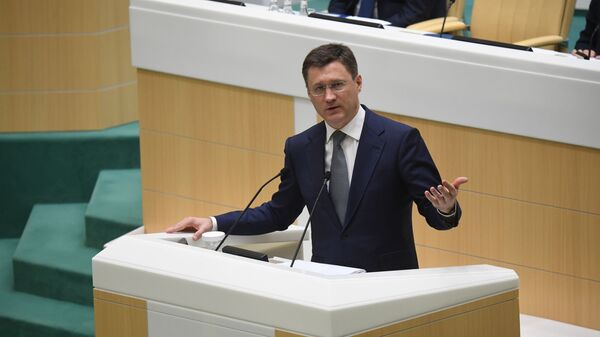A new OPEC+ agreement to reduce oil production will unite 23 countries and will last for two years - until May 2022 - with oil output cuts at 10 million barrels per day in the first two months, Russian Energy Minister Alexander Novak said in a statement, adding that G20 talks held on Friday were effective.
"We will need to monitor the situation on the market, it will certainly change and, if necessary, additional measures will be taken, or production will be restored more quickly by countries, in order to prevent, among other things, an oversupply on the market, because of that we must act in the interests of both producers and consumers," Novak said after the G20 meeting was concluded.
Novak also stated that in the second half of 2020, production cuts will be eased to 8 million barrels per day.
"OPEC+ was considering different periods of time for the agreement, but decided that two years is the most effective period. The deal could either be prolonged or shortened depending on how well the market is restored", he said.
The G20 energy minister's meeting on the stabilization of the global energy market took place on Friday and followed the Thursday OPEC+ video conference dedicated to the possibility of striking a new oil output cuts deal.
OPEC+ talks held on Thursday finished with the adoption of a new declaration on cooperation envisaging a three-stage oil production reduction, which was accepted by all states except Mexico.
Earlier, US President Donald Trump said that the United States would cut oil production to make up difference for Mexico and the country would reimburse later, stating that "helping Mexico to meet OPEC demands will not cost the US anything".
"It’s a small amount for us, it’s a large amount for Mexico, but it’s a very small amount for the United States being the biggest producer, so we agreed to pick up some of the slack of the amount for Mexico," Trump said in a press briefing. "So, Mexico is going to reduce by 100,000 barrels and that would mean that they are 250-300 barrels short, we’d make up the difference, they would reimburse us at a later date."
The OPEC+ deal, as well as that in effect before 1 April, involves 10 OPEC countries: Algeria, Angola, Congo, Equatorial Guinea, Gabon, Iraq, Kuwait, Nigeria, Saudi Arabia, and the United Arab Emirates. Three more OPEC members — Iran, Libya and Venezuela — are still exempted from production cuts due to sanctions and diplomatic challenges.
There are also ten so-called non-OPEC observer states in the deal — Azerbaijan, Bahrain, Brunei, Kazakhstan, Malaysia, Mexico, Oman, Russia, Sudan, and South Sudan.

